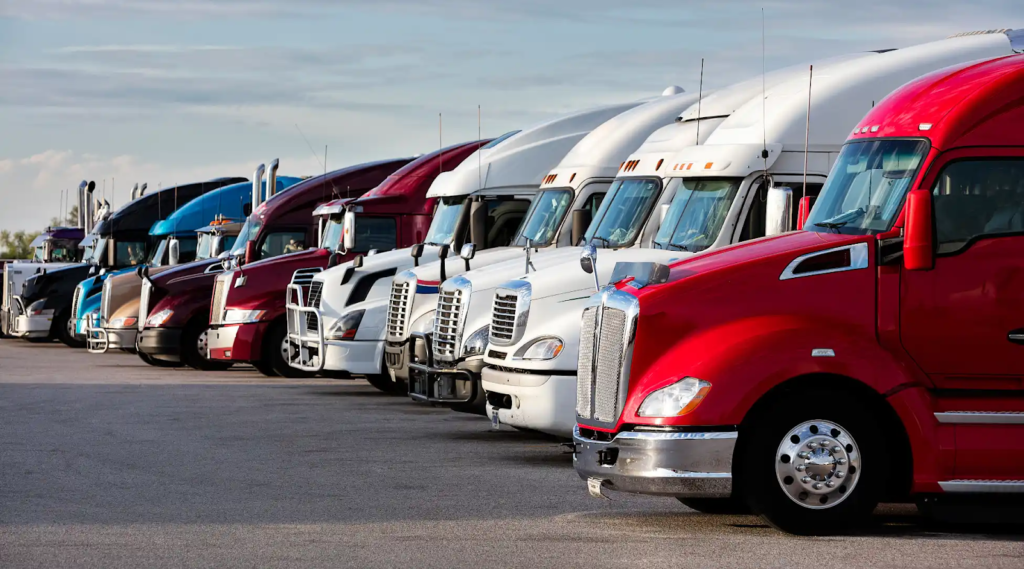Starting a trucking business can be a lucrative venture, but it’s essential to understand the legal requirements involved before hitting the road. The trucking industry is highly regulated, and failing to comply with legal standards can lead to hefty fines, business disruptions, or even shutdowns. This comprehensive guide will take you through the necessary steps to legally establish and run a trucking business, ensuring you avoid common pitfalls and stay compliant with industry regulations.
1. Understand the Legal Structure of Your Trucking Business
The first step in starting a trucking business is deciding on your business structure. This decision will affect your taxes, liability, and the way your business is managed. The most common legal structures for trucking businesses are:
- Sole Proprietorship: You own and operate the business on your own. While it’s simple and inexpensive to set up, you are personally liable for all debts and legal issues.
- Partnership: If you’re starting the business with one or more partners, you’ll need a partnership agreement. This structure also comes with personal liability.
- Limited Liability Company (LLC): An LLC separates your personal assets from your business. It offers liability protection and has tax advantages, making it a popular choice for trucking companies.
- Corporation: If you plan to expand quickly, this structure provides the most protection from liability and can help raise capital. However, it’s more complex and expensive to set up.
Consult with a business attorney or accountant to determine the best structure for your needs.
2. Register Your Trucking Business
Once you’ve chosen a legal structure, you’ll need to register your business with the appropriate authorities. This typically involves:
- Registering with the Secretary of State: If you’re operating as an LLC or corporation, you’ll need to file your articles of incorporation or organization.
- Obtaining an Employer Identification Number (EIN): This unique identifier is required by the IRS for tax purposes and is necessary for hiring employees.
- State and Local Business Licenses: Depending on your location, you may need state or local business licenses to operate legally. Check with your state’s business registration office to understand what’s required.
3. Obtain the Necessary Trucking Permits and Licenses
One of the most important aspects of starting a trucking business is ensuring that you have all the necessary permits and licenses to legally operate. These requirements vary depending on the type of trucking you plan to do (e.g., local, interstate, or international), the cargo you’re transporting, and the size of your fleet.
Key Permits and Licenses You May Need:
- Federal Motor Carrier Safety Administration (FMCSA) Authority: If you plan to operate across state lines, you must apply for an Operating Authority from the FMCSA. This grants you permission to transport goods and ensures you meet safety and insurance standards.
- USDOT Number: The United States Department of Transportation (USDOT) requires all trucking businesses that operate commercially to have a USDOT number. This number is used to track your safety compliance and is necessary for interstate transportation.
- International Registration Plan (IRP): If you plan to operate across multiple states or countries, the IRP allows you to register your vehicles in one jurisdiction and travel freely between others without needing to register separately in each state.
- International Fuel Tax Agreement (IFTA): This agreement allows you to report fuel taxes across multiple jurisdictions. It’s required for interstate trucking operations and helps simplify the tax process for fuel used in multiple states.
- Truck Permits Services: In addition to the basic permits, specialized trucking operations (e.g., oversized loads, hazardous materials) may require additional permits. Many trucking businesses use Truck Permits Services to help manage these complex requirements.
Ensure that all necessary permits are obtained before you start operating. Operating without the proper permits can result in fines or the suspension of your business operations.
4. Ensure Proper Insurance Coverage
Insurance is an essential part of running a trucking business. It not only protects your vehicles and drivers but also safeguards your business from liability in the event of an accident or other incidents. The types of insurance you may need include:
- Primary Liability Insurance: This is required by the FMCSA for all interstate trucking companies. It covers damage to other vehicles, property, or people in the event of an accident.
- Cargo Insurance: This covers the goods you are transporting. It’s crucial for ensuring that your customers’ products are protected during transport.
- Motor Truck Cargo Insurance: This provides coverage for your own fleet of vehicles and their contents, protecting you from loss or damage to the trucks and goods in transit.
- Workers’ Compensation Insurance: If you employ drivers or other staff, this insurance is necessary to cover medical costs and lost wages if employees are injured on the job.
- Commercial Auto Insurance: This type of coverage is essential for vehicles used in your business operations and covers everything from collision to liability.
Consult with an insurance agent who specializes in trucking to ensure you have adequate coverage for your specific needs.
5. Hire and Train Drivers
One of the most important aspects of running a trucking business is hiring qualified drivers. Drivers must meet several requirements, including:
- Commercial Driver’s License (CDL): All drivers must hold a CDL, which is obtained through testing at the state level. The type of CDL depends on the size of the truck and the type of cargo being transported.
- Driver Background Checks: Conduct thorough background checks to ensure that your drivers have clean driving records and no history of violations that could jeopardize your business.
- Safety Training: Drivers should be trained in safety protocols, including how to handle hazardous materials, how to secure loads properly, and how to drive safely in different weather conditions.
Develop a comprehensive training program and ensure that all drivers are well-versed in your company’s safety policies and regulations.
6. Implement Compliance and Safety Programs
Maintaining safety and compliance is critical in the trucking industry. The FMCSA has specific regulations for driver hours, truck maintenance, and cargo handling. You’ll need to establish a safety and compliance program that includes:
- Regular Vehicle Inspections and Maintenance: This ensures that your trucks meet safety standards and are roadworthy.
- Driver Logs and Hours of Service: Drivers must adhere to specific hours of service rules to prevent fatigue-related accidents.
- Drug and Alcohol Testing: All commercial drivers must be tested for drugs and alcohol as part of the hiring process and randomly throughout their employment.
Having a system in place to track compliance will help ensure your business operates smoothly and avoids legal issues.
7. Keep Detailed Records
Trucking businesses are required to maintain detailed records for compliance with both federal and state regulations. This includes:
- Driver Logs: Records of hours worked, rest periods, and driving times.
- Vehicle Maintenance Logs: Documentation of inspections, repairs, and maintenance.
- Insurance Documentation: Proof of insurance coverage and claims history.
- Tax Records: Detailed records of income, expenses, and taxes paid.
Ensure that your accounting and record-keeping systems are set up to manage all these details effectively.
Conclusion
Starting a trucking business requires careful planning, research, and a thorough understanding of the legal requirements. From choosing your business structure and registering your company to obtaining necessary permits and insurance, each step plays a vital role in ensuring the success and legality of your venture. By following this step-by-step guide, you can navigate the complexities of the trucking industry, ensuring that your business remains compliant and operates smoothly.
Remember, the trucking industry is heavily regulated, and staying on top of legal requirements is crucial for long-term success. Taking the time to understand the rules and regulations will save you from costly mistakes and position your business for growth.


